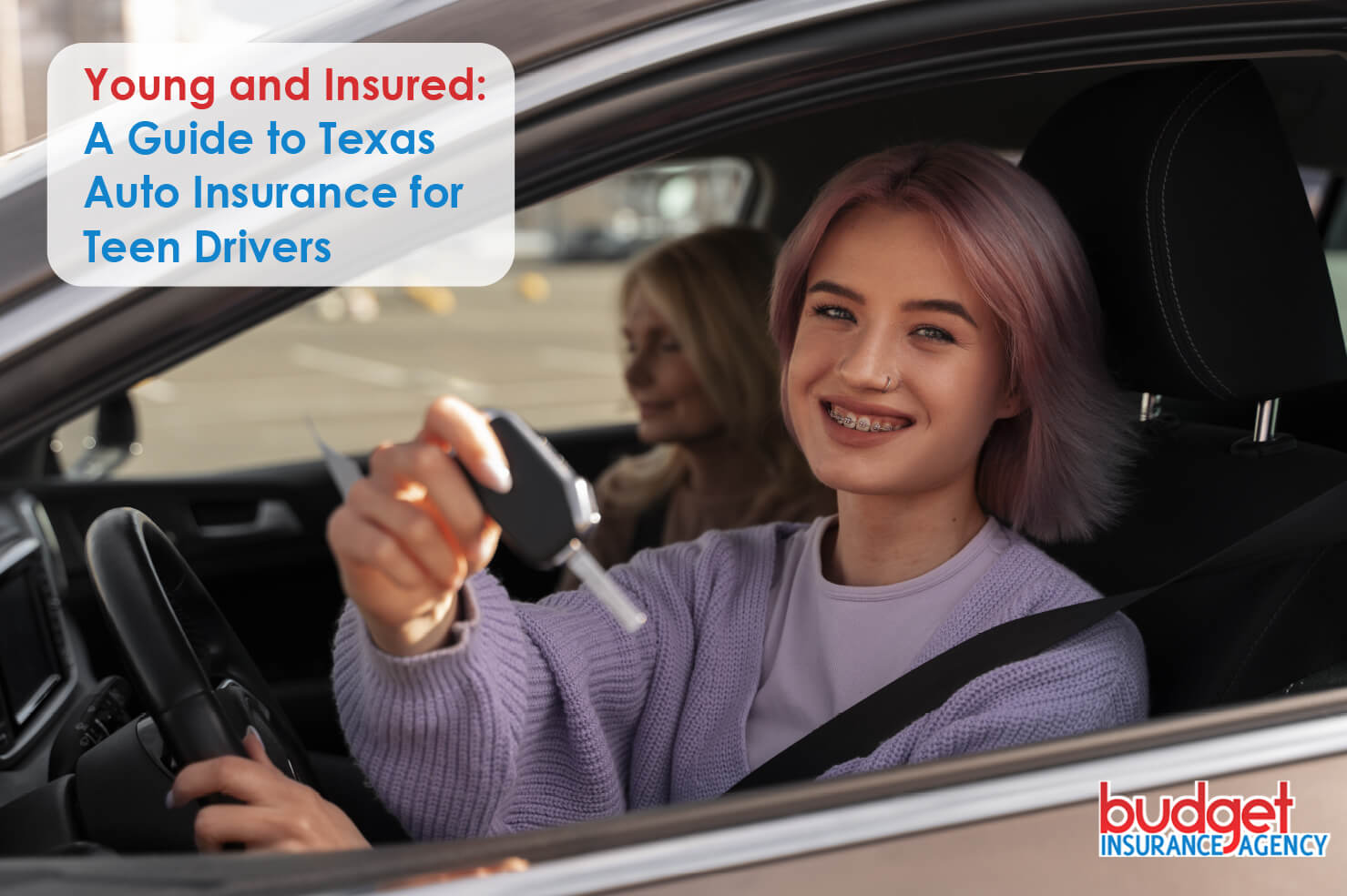
As teenagers embark on the journey of obtaining their driver's licenses and experiencing the newfound freedom of the open road, it's essential for them and their parents to understand the importance of auto insurance. Texas, like many states, has specific requirements and considerations for insuring teen drivers. In this guide, we'll explore the ins and outs of auto insurance for teen drivers in Texas, providing valuable insights and tips to help young drivers and their families navigate this crucial aspect of responsible driving.
1. Understanding Texas Auto Insurance Requirements:
In Texas, auto insurance is mandatory for all drivers, including teenagers. The state requires a minimum level of liability insurance to cover bodily injury and property damage liability.
The minimum liability coverage in Texas is commonly expressed as 30/60/25, meaning $30,000 bodily injury coverage per person, $60,000 bodily injury coverage per accident, and $25,000 property damage coverage per accident. Teen drivers must comply with these minimum coverage requirements to legally operate a vehicle in Texas.
2. Adding Teen Drivers to Existing Policies:
When adding a teen driver to an existing auto insurance policy, parents should be prepared for potential increases in premiums. Teen drivers are considered high-risk drivers due to their lack of driving experience and higher likelihood of accidents. Parents should contact their insurance provider to inquire about the process of adding a teen driver to their policy and any associated changes in premiums. Some insurance companies offer discounts for teen drivers who complete driver's education courses, maintain good grades in school, or participate in safe driving programs.
3. Coverage Options for Teen Drivers:
a. Liability Insurance:
- Liability insurance is the minimum coverage required by law in Texas and provides financial protection against bodily injury and property damage liability in the event of an accident where the teen driver is at fault. Parents should consider purchasing higher liability limits to provide greater financial protection in the event of a severe accident.
b. Collision Coverage:
- Collision coverage pays for repairs to the teen driver's vehicle in the event of a collision, regardless of fault. Adding collision coverage to the policy can provide peace of mind knowing that the teen driver's vehicle is protected from damage caused by accidents.
c. Comprehensive Coverage:
- Comprehensive coverage protects the teen driver's vehicle against non-collision incidents such as theft, vandalism, fire, and weather-related damage. This coverage is particularly valuable for teen drivers who may be less experienced at navigating potential risks on the road.
d. Uninsured/Underinsured Motorist Coverage:
- Uninsured/underinsured motorist coverage provides financial protection if the teen driver is involved in an accident with a driver who lacks sufficient insurance coverage. This coverage ensures that the teen driver and their passengers are covered for medical expenses and property damage in the event of an accident with an uninsured or underinsured driver.
4. Tips for Teen Drivers:
a. Practice Safe Driving Habits: Encourage teen drivers to practice safe driving habits, such as obeying speed limits, avoiding distractions, and wearing seat belts at all times.
b. Maintain Good Grades: Many insurance companies offer discounts for teen drivers who maintain good grades in school. Encourage teens to focus on their studies and excel academically to qualify for these discounts.
c. Attend Driver's Education Courses: Completing driver's education courses can not only help teens become safer drivers but also qualify them for discounts on their auto insurance premiums.
d. Compare Insurance Quotes: Encourage teen drivers and their parents to shop around and compare quotes from multiple insurance providers to find the best coverage options and rates.
e. Be Honest with Insurance Providers: When applying for auto insurance coverage, it's essential to provide accurate information about the teen driver's driving history, vehicle, and other relevant factors. Being honest with insurance providers ensures that the policy accurately reflects the teen driver's risk profile and coverage needs.
Auto insurance is a crucial aspect of responsible driving for teen drivers in Texas. By understanding the state's insurance requirements, exploring coverage options, and following best practices for safe driving, teen drivers and their families can navigate the process of obtaining auto insurance with confidence. Whether it's adding a teen driver to an existing policy, selecting appropriate coverage options, or encouraging safe driving habits, investing in auto insurance for teen drivers is a vital step in promoting safety and financial security on the road.